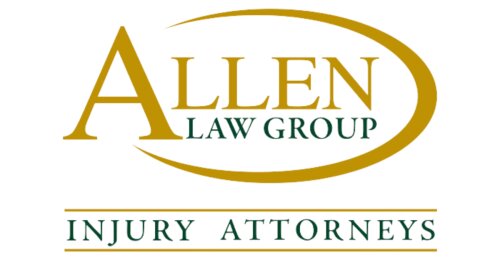Best Commercial Litigation Lawyers in Chicago
Share your needs with us, get contacted by law firms.
Free. Takes 2 min.
List of the best lawyers in Chicago, United States
About Commercial Litigation Law in Chicago, United States
Commercial litigation refers to the legal process of resolving disputes arising out of business and commercial relationships. In Chicago, these cases can involve a wide range of issues such as contract disputes, partnership disagreements, business torts, breach of fiduciary duty, and real estate conflicts. The commercial litigation process can take place in state or federal courts, depending on the particulars of the dispute, and often requires navigating complex laws and legal procedures. The city of Chicago, situated within Cook County, functions as a major commercial hub, leading to frequent business-related disputes that necessitate experienced legal guidance.
Why You May Need a Lawyer
Many individuals and businesses find themselves facing commercial litigation for a variety of reasons. You may require a lawyer if you are - Involved in a breach of contract dispute - Facing allegations of fraud or misrepresentation in business dealings - Navigating partnership or shareholder conflicts - Dealing with employment-related claims affecting your business - Handling disputes with customers, vendors, or competitors - Confronting issues related to non-compete or confidentiality agreements - Protecting your intellectual property rights - Responding to business tort allegations such as unfair competition - Needing to enforce or defend against enforcement of business agreements - Seeking to collect debts or defend against collections A qualified commercial litigation lawyer helps you understand your options, negotiate settlements, represent your interests in court, and pursue the most favorable outcome for your case.
Local Laws Overview
Commercial litigation in Chicago is primarily governed by the laws of Illinois and relevant federal statutes. Key elements include the Illinois Code of Civil Procedure, which sets the rules for how cases are handled in court. Business disputes over certain amounts and kinds of contracts often fall under the jurisdiction of the Circuit Court of Cook County, which is one of the country's largest court systems and has specific sections designated for commercial litigation cases. The Illinois Uniform Commercial Code addresses sales of goods and certain financial transactions. Chicago businesses must also comply with local ordinances and regulations that may impact litigation strategies and outcomes. Additionally, Chicago commercial disputes can sometimes be subject to alternative dispute resolution mechanisms such as arbitration or mediation, especially when required by contract. Understanding jurisdictional nuances, court procedures, and local statutory requirements is essential for effectively pursuing or defending against commercial claims in Chicago.
Frequently Asked Questions
What types of cases fall under commercial litigation?
Commercial litigation includes cases such as contract disputes, business torts, partnership disagreements, employment law issues related to businesses, real estate conflicts, intellectual property disputes, fraud claims, and breaches of fiduciary duty.
How long does commercial litigation usually take in Chicago?
The length of commercial litigation varies depending on the complexity of the case, the willingness of the parties to settle, court schedules, and the nature of evidence involved. Some cases resolve in months, while others may take years.
Will my case go to trial?
Not all commercial litigation cases go to trial. Many are resolved through settlement negotiations or alternative dispute resolution methods like mediation or arbitration. A small percentage proceed all the way to trial.
What should I bring to my first meeting with a commercial litigation lawyer?
Bring all documents related to your dispute, such as contracts, correspondence, invoices, court papers, and notes regarding key dates and events. This helps your lawyer assess your case more effectively.
Can I recover attorney fees if I win my commercial litigation case?
In Illinois, parties usually pay their own attorney fees unless a contract between the parties provides otherwise, or there is a specific statute that allows fee-shifting for your type of dispute.
What is the difference between mediation and arbitration?
Mediation involves a neutral third party helping the disputing parties reach a settlement, while arbitration is more formal and results in a binding decision from an arbitrator, similar to a judge.
How do I know if my case belongs in state or federal court?
Jurisdiction depends on the type and amount of the dispute, the parties involved, and the legal issues at stake. Your lawyer can determine whether state or federal court is the proper venue for your case.
What are business torts?
Business torts are wrongful acts committed against a business, such as fraud, misrepresentation, interference with business relationships, or unfair competition, that cause financial harm.
Are alternative dispute resolution methods common in Chicago commercial law?
Yes, many commercial contracts contain clauses that require mediation or arbitration. Courts may also encourage settlement or alternative dispute resolution to resolve cases efficiently.
What are the risks of handling commercial litigation without a lawyer?
Navigating complex legal procedures, understanding court rules, making legal arguments, and protecting your business interests can be extremely challenging without professional legal representation. Mistakes may lead to missed opportunities or unfavorable outcomes.
Additional Resources
There are several resources and organizations that can help those involved in commercial litigation in Chicago. These include: - Circuit Court of Cook County: For information on court procedures and local commercial litigation rules - Illinois State Bar Association: Offers lawyer referrals and legal information - Chicago Bar Association: Provides guidance on commercial law and attorney directory - Illinois Attorney General's Office: Handles certain business fraud and consumer disputes - Better Business Bureau of Chicago: Helps mediate certain business disputes - Local business development centers and chambers of commerce: Can help provide general guidance and support
Next Steps
If you are facing a commercial dispute in Chicago, it is important to seek legal advice as soon as possible. Gather all relevant documents and evidence, then consult with a qualified commercial litigation attorney to discuss your case and understand your rights and options. An attorney can help you develop a strategy, communicate with the opposing party, and represent your interests in negotiations or court. For help finding a lawyer, you can use bar association referral services or online directories dedicated to commercial law. Early and informed legal guidance is crucial for achieving the best possible outcome in your case.
Lawzana helps you find the best lawyers and law firms in Chicago through a curated and pre-screened list of qualified legal professionals. Our platform offers rankings and detailed profiles of attorneys and law firms, allowing you to compare based on practice areas, including Commercial Litigation, experience, and client feedback.
Each profile includes a description of the firm's areas of practice, client reviews, team members and partners, year of establishment, spoken languages, office locations, contact information, social media presence, and any published articles or resources. Most firms on our platform speak English and are experienced in both local and international legal matters.
Get a quote from top-rated law firms in Chicago, United States — quickly, securely, and without unnecessary hassle.
Disclaimer:
The information provided on this page is for general informational purposes only and does not constitute legal advice. While we strive to ensure the accuracy and relevance of the content, legal information may change over time, and interpretations of the law can vary. You should always consult with a qualified legal professional for advice specific to your situation.
We disclaim all liability for actions taken or not taken based on the content of this page. If you believe any information is incorrect or outdated, please contact us, and we will review and update it where appropriate.

















